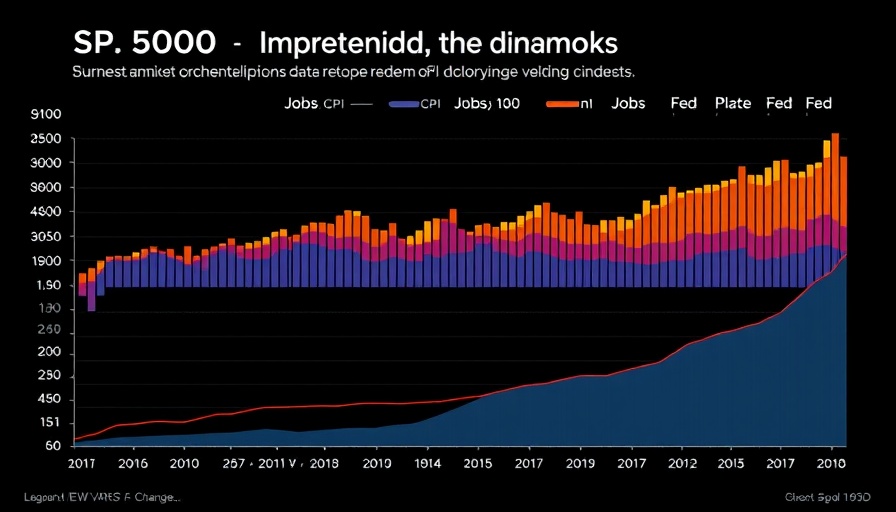
Understanding the Impacts of Inflation on the S&P 500
Inflation continues to cast a long shadow over the financial markets, especially as fresh data points indicate that rising prices could hinder the S&P 500's momentum. Recent predictions reveal that inflation rates, which are expected to remain stubbornly high, might significantly impact economic growth and investor sentiment.
Inflation’s Grip: A Historical View
Historically, periods of high inflation have brought about volatility for stock markets. For instance, during the infamous inflation crisis of the 1970s, the S&P 500 experienced a drastic downturn, with a nearly 50% drop from 1972 to 1974. The concern is that current inflation trends mirror those troubling times, putting the market's latest gains at risk.
The Fed's Dilemma and Investor Reactions
The Federal Reserve is in a tight spot, battling persistent inflation while trying to avoid stalling economic recovery. Should they opt for drastic interest rate hikes, as many economists predict, it could lead to a mass exodus from equities towards safer investments like treasury bills. In 2022, a similar pattern saw stocks retreat significantly, and repeated maneuvers now may incite fear and uncertainty among investors.
What Lies Ahead for the Markets?
As inflation remains a hot topic, businesses and financial experts urge investors to brace for impact. Should inflation continue unchecked, the S&P 500 might not only falter but also lead to broader economic implications, particularly for small and mid-sized businesses that often bear the brunt of these conditions.
Managing Expectations
For investors, understanding the dynamics of inflation is crucial. Strategies involving a diversification of portfolios can help in navigating this uncertainty. With experts hinting at the potential for further volatility in the near term, maintaining a cautious approach may be the wisest path forward.
 Add Row
Add Row  Add
Add 




Write A Comment